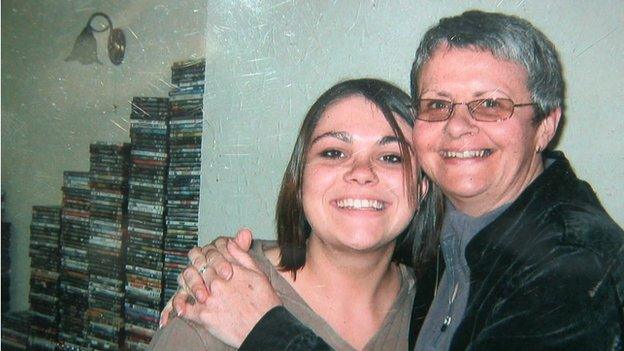'What my dad's dementia taught me'
- Published
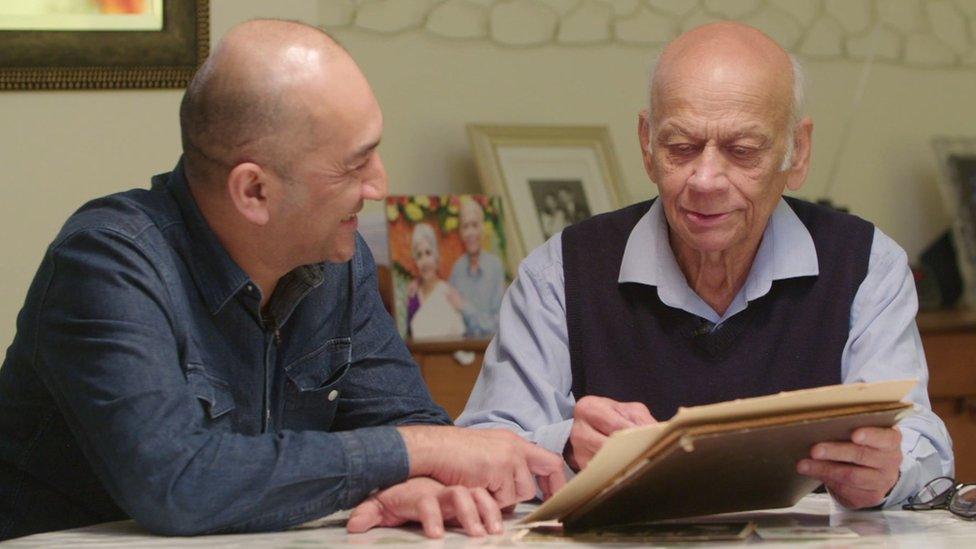
Rajan describes his father as a "genial man with a mischievous glint in his eye"
When BBC presenter Rajan Datar learned that his father had dementia, it led him to discover that a combination of stigma, language barriers and cultural differences were stopping many in the UK's South Asian community from seeking help. This is his experience.
My father Sudhakar is a friendly, genial man with a mischievous glint in his eye and always keen to share a joke.
He turns 85 in February and says he has enjoyed a fulfilled life. He was one of the first wave of immigrants from India and Pakistan who came to the UK in the 1950s.
But in the last year or so, he and my mother Hema have noticed certain changes in his behaviour.
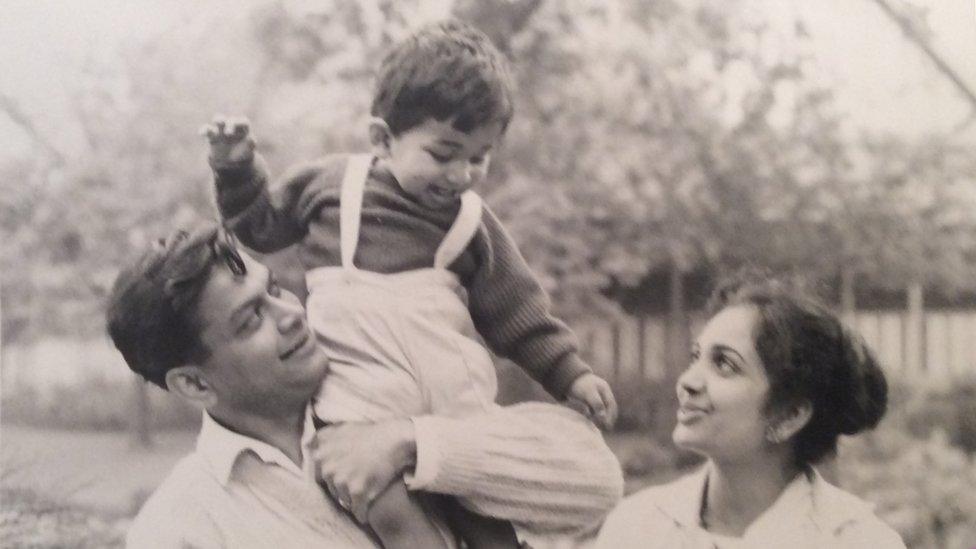
Rajan as a young boy, with his parents
He went through a phase of feeling very apathetic and unsociable, which was unusual for him as he has always been a very active and gregarious person.
There have been times when he has not known where he was in his own home.
And there was also a disturbing episode where he got off the bus to go to the Post Office he has used for the last 20 years, completely forgot what he was doing and began walking in the opposite direction.
"I didn't know where I was. This was the first time [it had happened]," he explains, as we film for the BBC's Victoria Derbyshire programme.
He has now been diagnosed as being in the early stages of mixed dementia - a combination of vascular dementia, caused by reduced blood flow to the brain, and Alzheimer's.
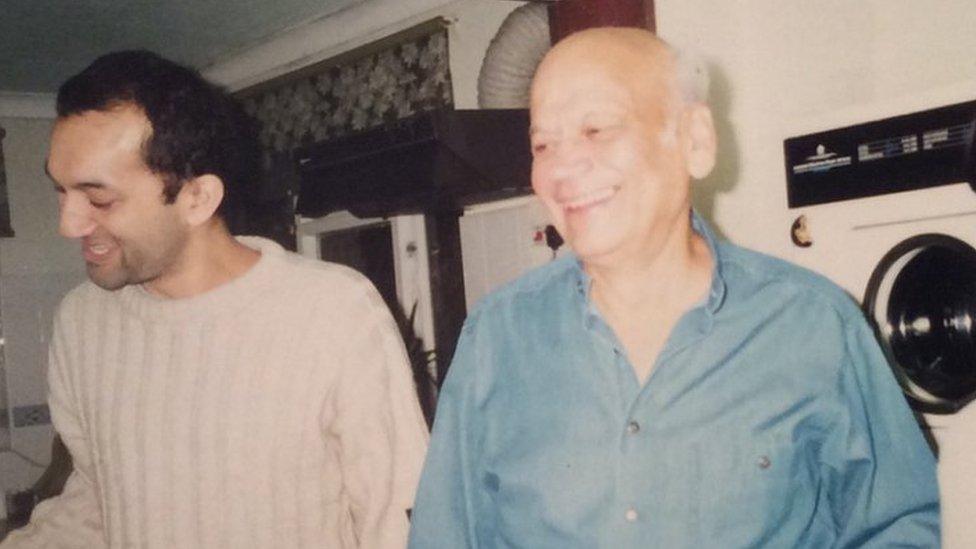
Rajan with his father
Sharing this openly is not the easiest thing to do, and I certainly wouldn't have done it without his full blessing and co-operation.
To be honest, in spite of the diagnosis, it took a while for many of us to accept that he really had the condition.
But the fact is both his elder sisters died in their 80s with advanced dementia, and British Asians are less likely to be diagnosed - and therefore be given the support they need - when they have the condition.
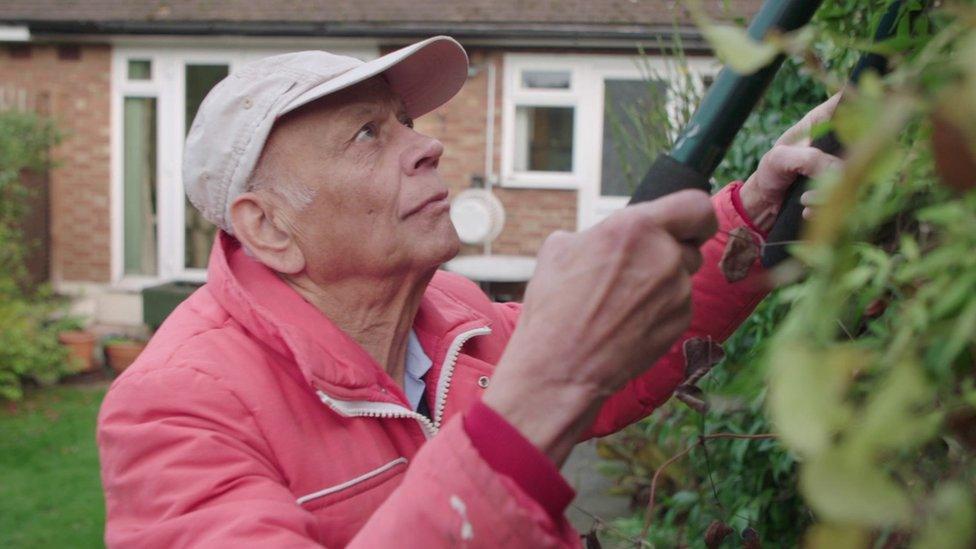
Sudhakar used to love playing bridge, gardening and DIY, but has lost interest in them since developing the condition
Very few studies have been done in this area, but one - from 2014 - suggested that by 2051 there would be a sevenfold increase in the number of people from black, Asian and minority ethnic (BAME) backgrounds who would be reported to have dementia.
This compares with an estimated twofold rise across the UK in the same period.
It is partly explained by the fact that many of those who migrated to the UK at the same time as my father are now reaching older age.
South Asians are also more prone to diabetes, high blood pressure and hypertension, which means they are more likely to develop vascular dementia.
But there has also been a stigma surrounding dementia within the community that has stopped people seeking diagnosis and help.
Significantly, there is no word for dementia in most Indian languages - instead it translates as a "mad" person.
My own dad said he didn't go to the doctor initially because he "didn't want to waste their time, they're busy enough as it is".
When he did, he was asked to name 10 animals as part of a memory test - and was able to recall only two.
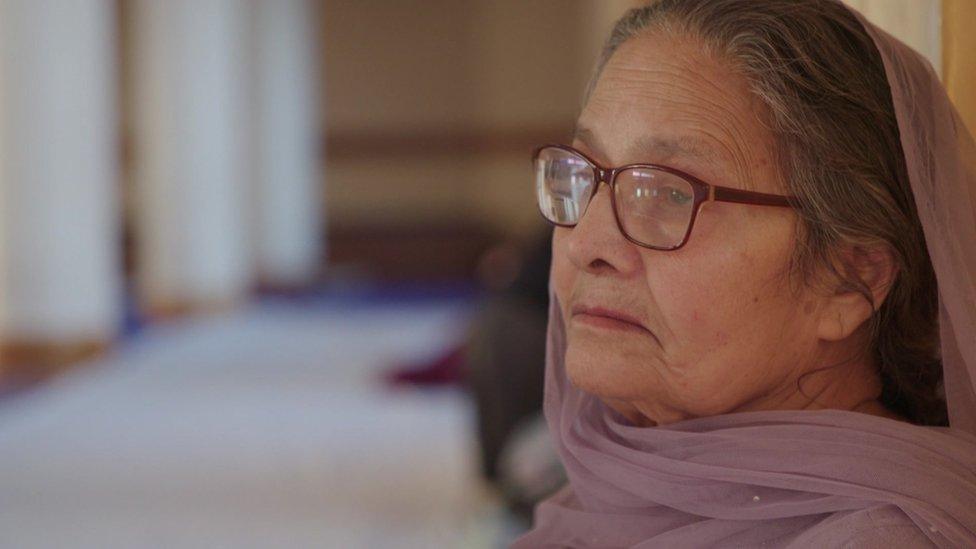
Charan Kaur Heer lives with an advanced form of dementia
According to one study, a third of elderly South Asians do not speak English and many prefer the sanctuary of temples or mosques to approaching care and health services.
That is the case with Charan Kaur Heer, whose husband died with dementia eight years ago, and who is now in quite an advanced state of the condition.
"She does get very depressed," explains her daughter Manjeet Heer, a police constable in Ealing, west London.
"She has said to me that she's just waiting to be taken, and how much she misses [her husband]."
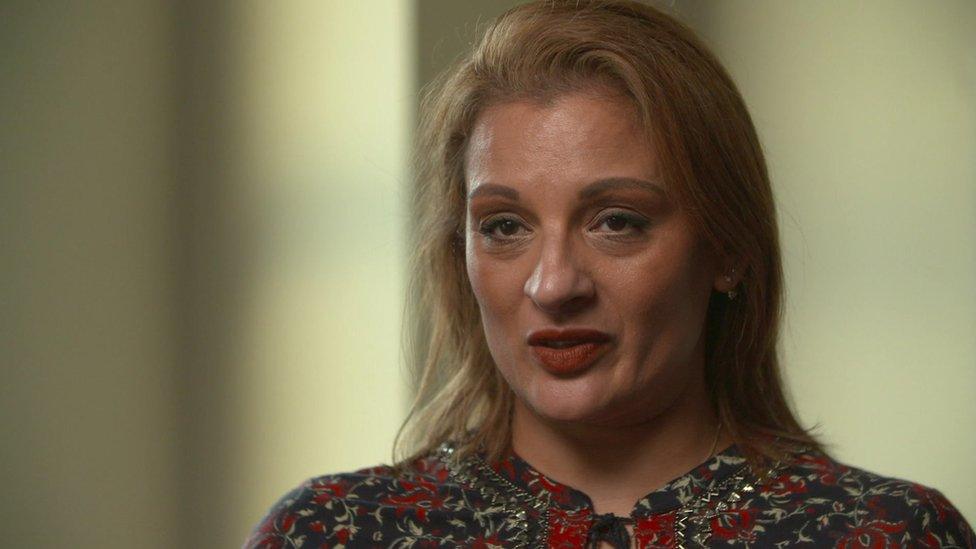
Manjeet Heer believes care for those with dementia should do more to prevent language barriers
Charan's grandson, Ryan Sangar, is now her principal carer.
But because he does not speak Punjabi, his aunt must be used as a translator - via phone call - each time a member of the care services visits.
Manjeet says the NHS must do more to take into account language barriers and cultural differences - suggesting the need for literature, assessments and a helpline in languages such as Punjabi.
Dr Naaheed Mukadam, a senior research fellow at University College of London, says: "If more is not done to get people help sooner, this will lead to more crises and more hospitalisation.
"This is not only associated with increased distress for everyone, but also raises costs".
Sit-down yoga
My parents have come to terms with my dad's condition, and are meeting it with their enduring stoicism.
"You have to put up with it," my dad tells me.
"Once you accept it, you can deal with it," my mum adds.
But there are ways to help delay and alleviate its effects.
Drop-in centres run by the Ethnic Minority Advisory Group can now be found in a few areas of the UK, providing advice, social activities and exercise classes for local people.
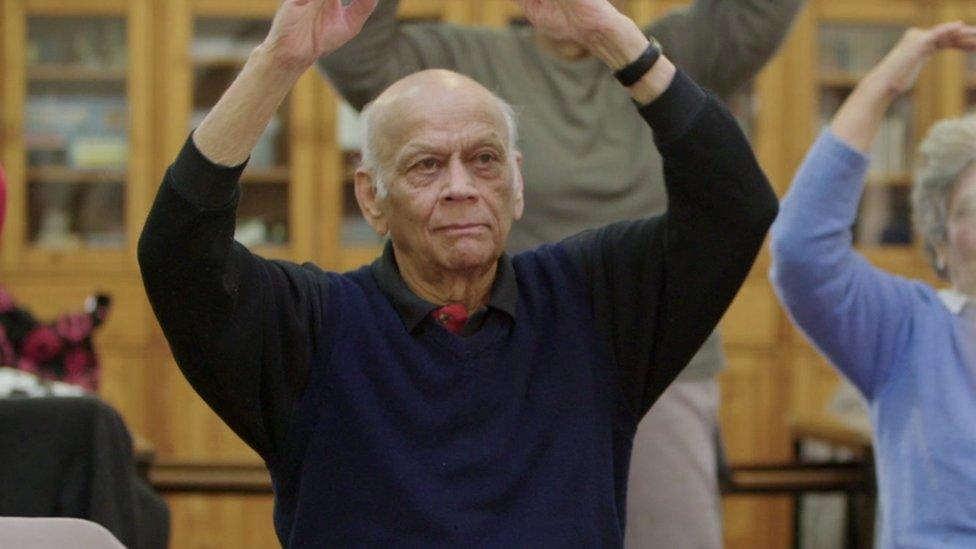
Sudhakar took part in a sit-down yoga class aimed at preventing loneliness and depression
They aim to prevent loneliness and depression, and keep the mind and body active.
What became clear to me is that these centres are invaluable lifelines for people who can be in horribly vulnerable positions.
Surinder Kaur, from the Whitton Day Centre in Middlesex, explained that "people come in full of tears, miserable - within weeks they are transformed".
So I cannot tell you how chuffed I was when my dad agreed to go down to the centre to meet some other folk of similar age and background, and even take part in a sit-down yoga and dance class.
Mind you, afterwards he told me that it is not really his thing and he wants to try out tai chi instead.
Bring it on, I say.

Follow the Victoria Derbyshire programme on Facebook, external and Twitter, external - and see more of our stories here.
- Published1 March 2018
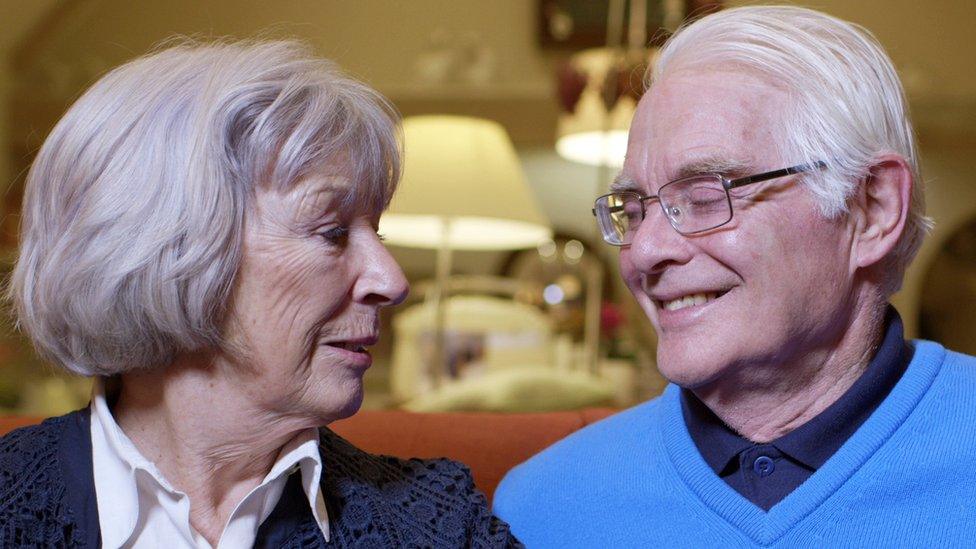
- Published8 April 2015
